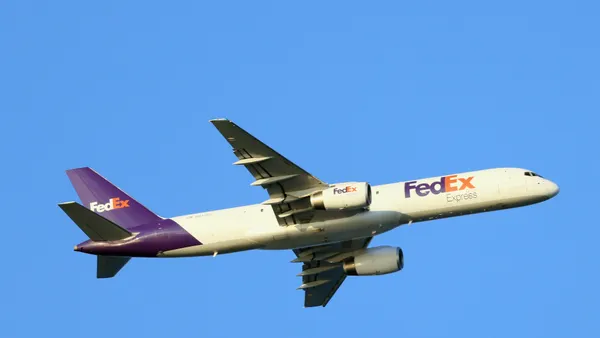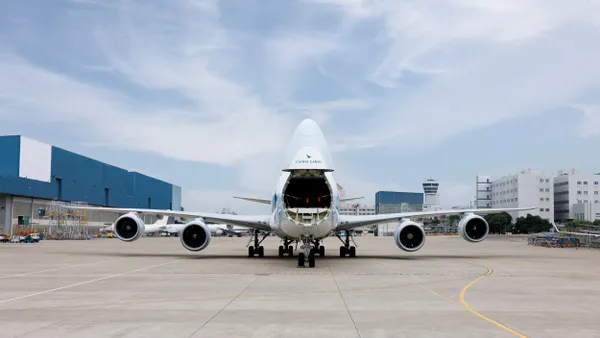Dive Brief:
- Novo Nordisk said it was stockpiling merchandise ahead of the Brexit deadline, with plans to increase its insulin stockpiles to about 18 weeks by the end of March. The company usually keeps these levels around seven weeks, according to Bloomberg.
- "While we have stockpiled, the issue then from a supply point of view is how quickly can we replenish that stockpile, because we anticipate there could be some delays,” Pinder Sahota, the company's U.K. general manager, told Bloomberg.
- The pharma company has also booked flights for air cargo so it can easily bring insulin in even if there are backups at the border resulting from a no-deal Brexit.
Dive Insight:
Novo Nordisk is not alone in its decision to stockpile goods — 75% of warehouse owners in the U.K. say their space is at capacity, according to The Guardian.
The reason for worry is the deadline for withdrawing from the European Union — March 29 — is quickly approaching. If this date rolls around and there isn't a new deal drawn up, then trade between the EU and U.K. will be subject to World Trade Organization rules including customs checks and tariffs. This could lead to higher prices and shortages for some items, according to The Week.
Diabetes UK — a non-profit organization supporting people with diabetes — raised this issue last year, saying more than 1 million people in the U.K. suffer from diabetes.
"Insulin isn’t an optional extra for people with diabetes who rely on it, so it’s incredibly important that those companies involved in its production and supply, and those involved in guaranteeing its entry into the UK, work together to ensure supply continues uninterrupted," Diabetes UK said.
The government is aware a no-deal Brexit could be a messy situation. The U.K.'s Secretary of State for Health and Social Care Matt Hancock provided guidance to medicine suppliers to help them plan for this possibility. Hancock suggested having six weeks of stockpiles, but also said the government was working to make sure there was a smooth transition.
"The Government recognises the vital importance of medicines and medical products and is working to ensure that there is sufficient roll-on, roll-off freight capacity to enable these vital products to continue to move freely in to the UK," Hancock wrote.
Manufacturers of medicine are not the only ones worried. The U.K. imports about 30% of its food from the EU, and a no-deal Brexit could be a struggle for smaller food suppliers and restaurants, Time reported.
The U.K. government's most recent guidance is for timber importers and exporters who, under the no-deal scenario, will have to undergo checks to ensure their product was harvested legally.
"Businesses can either develop their own systems for these checks or use one provided by an approved monitoring organisation," the government wrote. "This is what businesses currently have to do when they import timber from the rest of the world."












